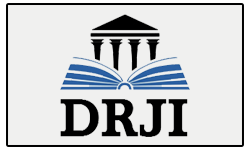Review on Goat Mastitis and Associated Bacterial Zoonoses in Raw Milk from Mastitis Infected Dairy Goat
Abstract
Mohammed Bedruddin Aliyi (DVM)
Goat milk has medicinal value for children and contributes much more for the wellbeing of human baby. Goat milk provides more nutritional value than dairy cow’s milk. Despite the large number of goats and their contributions to the livelihood of the farmers, goat productivity is low due to prevalence of different diseases. One of the major diseases that affect the dairy goats is mastitis. Mastitis is an inflammation of the mammary gland, caused by over 150 different contagious or environ�?� mental micro�?�organisms. Mastitis in goats constitutes an enormous animal health problem. In addition to causing health problems, inflammation of the mammary glands can also cause poor quality of milk. Milk produced by goats with mastitis presents a serious risk in terms of public health as it can be linked to milk-borne diseases for humans. Raw milk from Mastitis infected goat is usually colonized by a variety of many zoonotic pathogens such as enterohaemorragic Escherichia coli, Sal�?� monella typhimurium, Listeria monocytogenes and Staphylococcus aureus, Brucella melitensis, Mycobacterium bovis. These pathogens in milk have been linked to mastitis milk. These zoonotic organisms may lead to health problems in the human population such as tuberculosis (TB), brucellosis, haemorrhagic enteritis, salmonellosis and food poisoning. Transmission of pathogens from animals to humans can occur via consumption of milk, especially when these products are consumed raw.



